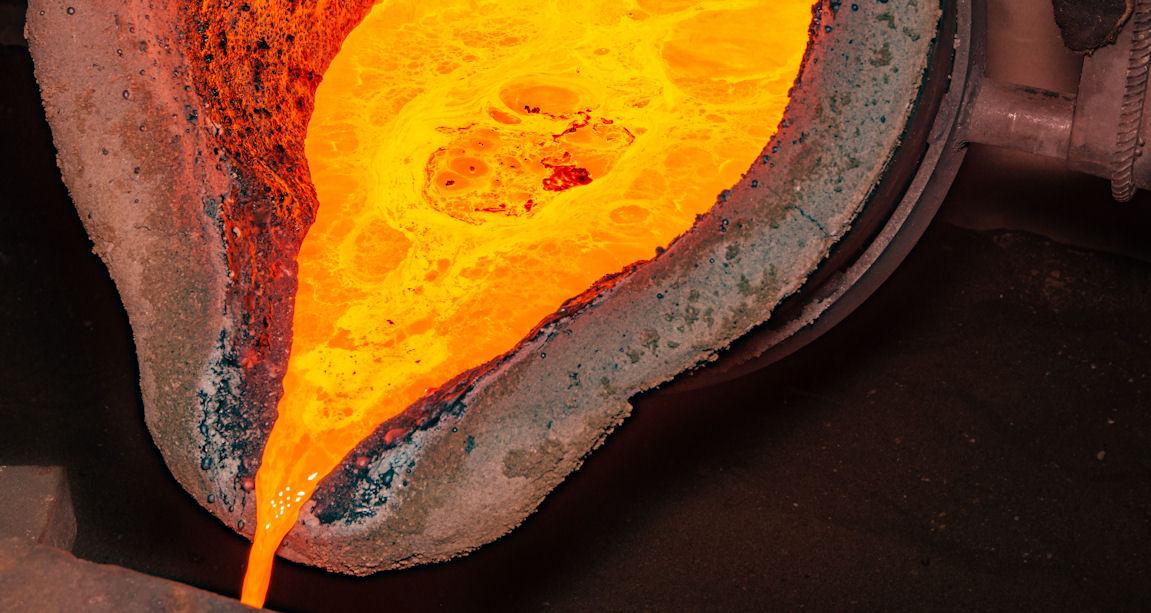
Lime is one of the key components in steel manufacturing, where it is used as a slag former. The purpose of slag is to protect the melt and the furnace.
As most of you may know, steel can also be produced in an electric arc furnace (EAF), the process which is of particular interest when moving towards a fossil-free future.
For this reason, Nordkalk is actively working with its customers to lead the industry at producing green lime. We believe this can be achieved in several ways. That is why, we are continuously working to develop new, more efficient and sustainable ways to use lime in the steel manufacturing process.
Injection lime saves energy and raw material
There are many different ways to add lime into the steel manufacturing process, one of which is to stop the energy input to the process and to open the lid of the furnace. However, when stopping the energy input to the furnace, the whole process is stopped. This prolongs the production time and causes high energy losses.
To be able to add lime without stopping the process and opening the furnace, and in order to save energy, we need injection lime. Nordkalk not only produces lime but is also developing lime as well as a process that is suitable for injection of lime into the EAF.
Injecting the lime into the EAF is a more efficient and sustainable use of specialised lime and a great replacement to traditional methods as a smaller amount of virgin raw material is needed in the production.
Injection also eases the process control for the electric arc furnace operators. By introducing injection into the process, lime can be added several times, if the basicity of the slag is not on a suitable level without compromising the process.
Research and development
Nordkalk is working closely with researchers from the Finnish university Åbo Akademi in Turku Finland, on the topic of injection lime. The most current study, which will soon be published by master´s student Hourakhsh Bayat, consists of different particle size distribution and different velocities. The study has modelled a cold EAF with paraffin oil and water to represent slag and melt. Measurement on the penetration depth, dusting and flow has been analysed.
Sustainable use of lime has been one of the main motivators of the study. By using all fractions that are produced no excess product is produced. Due to the high suction velocities in an EAF, dust may be a challenge. Nordkalk is also investigating the possibilities of using smaller particles in the injection without causing excess dusting.
By injecting lime at the correct velocity to the furnace by penetrating the slag and reaching the melt, lime will react faster and the slag will perform better. The distribution of the lime into the furnace also needs to be taken into consideration.
As lime is usually stored in silos before use, the temperature of lime will be low. To avoid the formation of cold spots in the furnace, the injection points need to be planned accordingly and the lime aimed to be injected into the hot spots.
For the best performance of the injection system, several parameters are needed to be taken into account; velocity, slag foaming, heat difference, particle size distribution, injection angle, dusting and humidity to name a few.
To summarise, Nordkalk’s injection lime process is an efficient and low carbon solution to adding lime into the steel making process for a more sustainable future. It not only saves energy and raw material, but increases yield and also leads to a better process control.
Thomas Kurtén
Technology Manager, Nordkalk

Thomas has adopted a new role as the technology manager for Nordkalk and is responsible for the technical development.
We use cookies to give you the best internet experience. By giving consent, you accept the use of cookies in accordance with our cookie policy.

When you visit any web site, it may store or retrieve information on your browser, mostly in the form of cookies. Control your personal Cookie Services here.